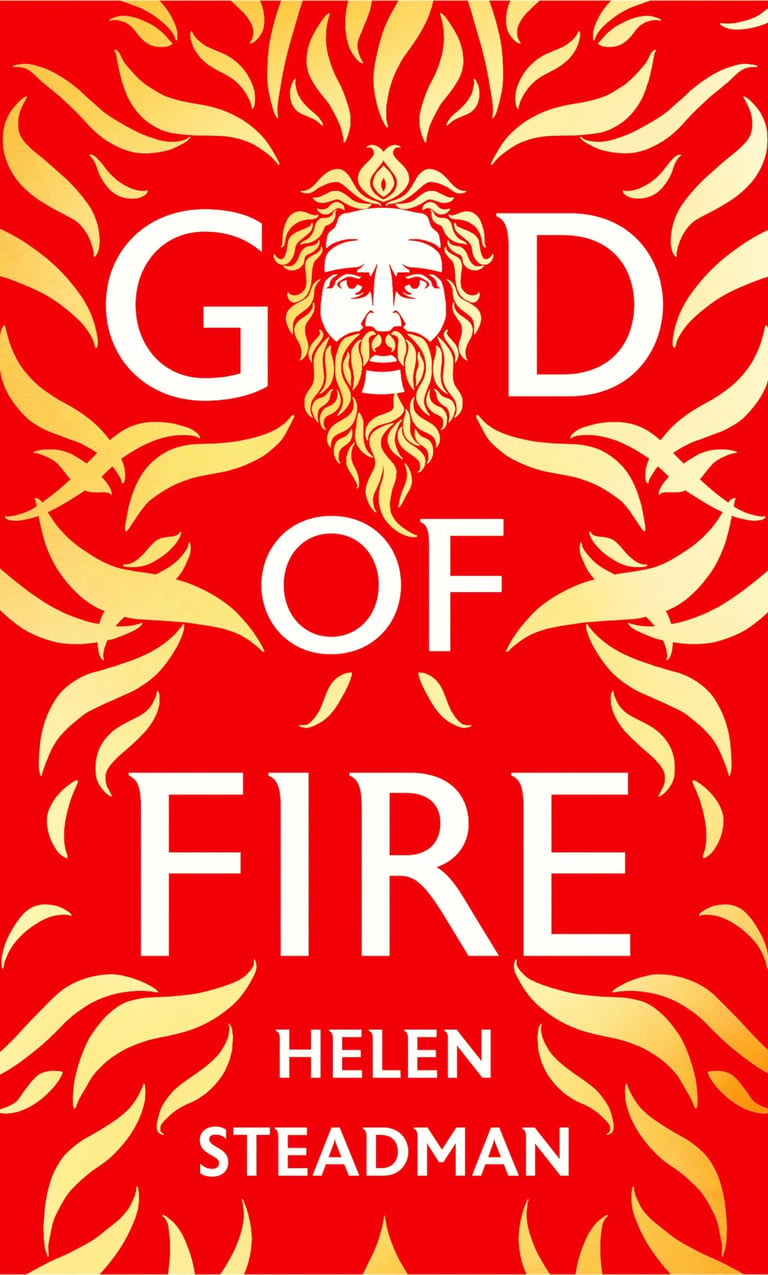God of Fire
A Greek myth retelling of the outcast god who forged Olympus in flame and fury.
Hephaestus is the only Olympian whose injuries never heal—and Zeus adds to his burden by sentencing him to life with Aphrodite.
Trapped in a loveless marriage to the adulterous goddess of love, Hephaestus turns to fire, creating divine wonders to soothe his pain.
Of course, his fellow gods waste no time in demanding all manner of magical inventions. But Hephaestus is nobody’s fool.
His magic hides a shadow side—as gods and mortals learn to their cost when Zeus commands him to create Pandora’s jar…
Uncover the dark truth behind the gods in this immersive Greek mythology novel.
Review from the Historical Novel Society
This is a clear-eyed, unsentimental telling of the life of Hephaestus, the god of fire, who was born on Mount Olympus to Hera, the queen of the gods. Disgusted by him from his birth, Hera cast him out from Olympus. Injured in the fall, he was adopted by the sea witch Thetis and the earth’s creatrix, Eurynome. Called Heph, he yearns to be loved by his real mother and to discover the identity of his father.
Steadman skillfully weaves together the old Greek myths of Prometheus, Medusa, Hercules, Io, Pandora, and others, relating the tales through Hephaestus’ eyes and thus giving the reader a fresh perspective on the old stories. Heph is a sympathetic and appealing character, considered ungainly and ugly by the other Olympians for his lameness and unattractive features, but tolerated for his formidable talents as a smith. He’s usually caught up in his divine family’s schemes and plots through no fault of his own and often finds himself torn by their constant squabbling and infighting. Even his jokingly arranged marriage to Aphrodite, the most beautiful of the goddesses, proves no picnic, as she is vain, self-absorbed, and oftentimes downright nasty.
The author, with her storytelling skill, wit, and attention to detail, brings the myriad characters of Greek mythology vividly to life. She provides alternative and imaginative takes on several of the myths, including the creation of man (and woman), how Persephone became queen of Hades, and how a golden apple started a war, first between the Olympians and then between Greece and Troy. At the same time, Steadman keeps the novel’s focus on Heph, determined to discover his true history and find his place among the pantheon of the gods.
Michael I. Shoop


